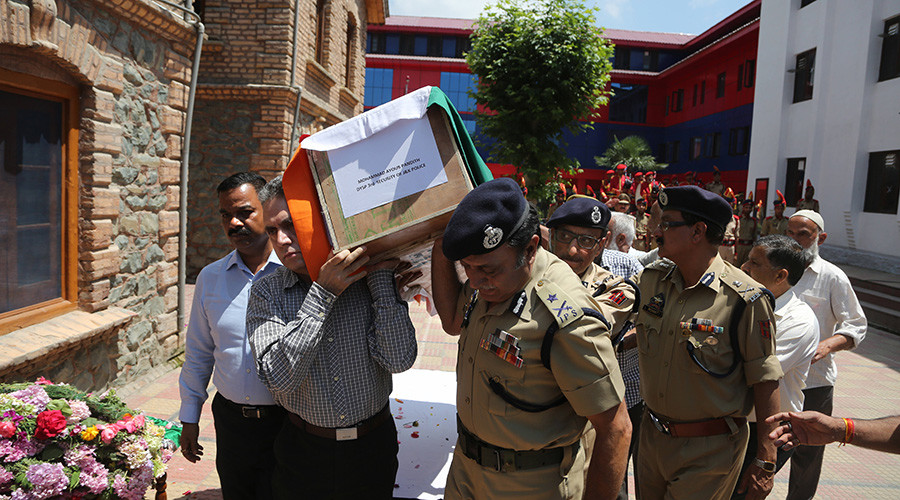A region in turmoil
June 24, 2017 | Expert Insights

A senior Indian policeman has been lynched by a mob outside a mosque in Srinagar in Kashmir. The incident took place during the night when thousands had gathered to offer Shab-e-qadr prayers, which is considered as one of the holiest days in Islam.
Background
India currently administers over 43% of the total region there are multiple insurgent forces who have been locked in conflict with the Indian Army for decades. A disputed election in 1987 became the root-cause for much of the modern insurgent groups where members of state's legislative assembly deflected and started their own insurgent groups. India has claimed that Pakistan aids in much of the insurgency but the latter has denied those charges. Reports have also emerged about the human rights abuses that allegedly take place in the Kashmir valley and neighbouring regions, which are being carried out by the Indian Army.
During the 2010 and 2014 elections, the voter turnout was high in Kashmir. The Indian government took that as a sign of the people in Kashmir being willing participants of the Indian governing process. But the valley was plunged into unrest with the killing of influential militant Burhan Wani in 2016. Wani, came from a upper class educated and well-known family in Kashmir. He was the commander of Hizbul Mujahideen and was a popular figure among Kashmiris. Being sympathetic towards the cause of the separatists, he fled his home in 2010 and became a militant by the time he was 16. Wani gained prominence when he started using social media especially Facebook to advocate his cause and found many sympathizers. On August 31, 2016, he was killed during an encounter with Indian forces. That became the ignition that led to multiple protests across the valley. This led to a curfew being imposed in the region for 53 days but this period also saw over 15,000 civilians and over 4,000 security personnel getting injured.
Beyond physical injuries, the unrest fractured the psyche of the region and there has been an increase in radicalization.
Analysis
As Muslims observe the Holy month of Ramazan (the ninth month in the Islamic calendar during which period Muslims fast as a way to commemorate the first revelation of Quran to the Prophet Muhammad), the death toll has risen in Kashmir in 2017 as well. During this holy period, there have been a total of 42 deaths including six civilians, nine policemen and 27 terrorists. There was only 7% voter turnout in the by-elections that were held in Srinagar in April 2017.
The police officer, DSP Mohammad Ayoub Pandith had been deployed in plain clothes to the Jamia Masjid mosque when he got into an altercation with a group of people who reportedly caught him taking photographs with his cell-phone. This tussle escalated as more people entered the group. Locals have alleged that the police officer reportedly fired into the crowd in a bid to get away from the mob but was attacked with stones and died from the injuries sustained.
The death of Mohammad Ayoub Pandith has shocked the residents and has drawn condemnation. One of the most popular separatist leaders, Umar Farooq, who had been speaking at the mosque at the time of the incident spoke out noting, “Deeply disturbed & condemn the brutal act at Nowhatta. Mob violence & public lynching is outside the parameters of our values & religion…”
Assessment
Our assessment is that there seems to be a serious deficiency in trust between the people and the state. Given that it is the holy month of Ramazan and the people who had gathered at the mosque would have just broken their fast, it is unlikely that this was premeditated. There must have been a provocation, intentional or otherwise, that triggered the chain of events.








Comments